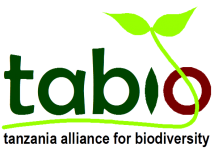Asili B Project
PROJECT TYPE: ONGOING
Project Update: Agroforestry and Sustainable Agriculture Land Management for Food and Nutrition Security in Mtwara, Lindi, Mara and Kagera Regions
Introduction
The agricultural sector is pivotal to the economy of our country, contributing significantly to GDP and employing a large portion of the population. Mtwara, Lindi, Mara and Kagera Regions are agricultural hubs, However, challenges such as climate change, soil degradation, and gender inequality hinder sustainable agricultural practices and exacerbate food and nutrition insecurity.
High levels of malnutrition persist in Tanzania, despite recent improvements. Additionally, food and nutrition insecurity persists due to various factors including poor farming practices, inadequate availability of diversified foods, and insufficient knowledge on nutrition.
This project is funded by Vi Agroforestry
Project duration 2023-2027
Objectives:
- Overall Objective: Improve smallholder farmers’ food and nutrition security, sustainable livelihoods, gender equality, and resilience while enhancing biodiversity conservation and climate mitigation.
- Specific Objectives: Strengthen farmer organizations, increase capacity of smallholder farmer families for food production, and enhance capacity of duty bearers for scaling up agroforestry.
Result Areas, Outcomes, and Outputs:
Result Area 1: Food and Nutrition Security
- Outcome 1: Enhanced capacity of farmer organizations to address food and nutrition issues.
- Outputs: Conduct capacity gap analysis, produce information materials, provide training, and support policy development.
- Outcome 2: Increased availability and accessibility of diversified nutritious foods.
- Outputs: Conduct baseline surveys, support ESIA studies, provide training on sustainable agriculture, establish demonstration gardens, and organize awareness campaigns.
Result Area 2: Advocacy
- Outcome 2.1: Enhanced political will for evidence-based policy change.
- Outputs: Conduct gap analysis of agricultural plans, produce policy briefs, and strengthen capacity of farmer organizations.
- Outcome 2.2: Enhanced promotion, funding, and implementation of agroforestry strategies.
- Outputs: Produce policy briefs, advocate for funding, and strengthen farmer organizations’ capacity to engage with local governments.
- Outcome 2.3: Citizens engage to hold the state accountable.
- Outputs: Build capacity for citizen engagement, facilitate meetings with government officials, and empower farmer organizations for advocacy.
Strategies and Approaches:
- Partnership Approach: Capacity development and sustainability planning.
- Extension Methodology: Individual, group, and mass methods.
- Rights to Food and Climate Justice: Promote access to food through SALM and biodiversity conservation.
- Gender Transformative Approach: Challenge gender norms and promote gender equality.
- Conflict Sensitivity: Conduct conflict sensitivity analysis to inform interventions.
- Conflict Sensitivity: Leave No One Behind: Ensure inclusivity of all, including men, women, and youth.
Target Area and Beneficiaries:
Implementation will focus on 37 villages in Lindi, Masasi, Nanyumbu, and Mtwara Rural districts, Mara and Kagera regions
Indirect beneficiaries: These are other individuals, groups or organizations who are not the direct target of our interventions and activities. A total of 7000 members of the households (3,500 male and 3500 female) per district will be reached through gained knowledge of the direct beneficiaries. They include other members of the community in the three districts who are not implementing the project.
Direct beneficiaries: These are Farmers Organizations and Smallholder Farmer Groups who work with farmer families which are food and nutrition insecure in selected areas of Mtwara and Lindi regions to benefit as direct recipients of our activities. A total of 15 Farmers Organizations namely TUVAMO, NYAPAU, MAWODEA, UMIKA, MABAMA, MACOA, KIMAS, NADEFO, SHAKHAM, MSOAPO, MUUNGANO, BUFADESO, MVIWANYA, SFT, IDS and 46 Smallholder Farmers Groups which work with 1400 households from 40 villages have been sampled. Also, are 10 Extension Officers (5 men and 5 women) from the Departments of Agriculture, and Community Development in the targeted districts. They are the ones who are responsible agroforestry and nutrition in their districts. Others are 14 Village Executive Officers (7 men and 7 women) and 30 policy and decision makers i.e. (15 men and 15 women) who are Members of Parliament (Industry, Trade, Agriculture, committee). They are supposed to make sure that the National Agriculture Policy of 2013 which is currently under review is friendly in practicing SALM and agroforestry.







 Users Today : 0
Users Today : 0 Users Yesterday : 7
Users Yesterday : 7 Users This Month : 7
Users This Month : 7 Users This Year : 334
Users This Year : 334 Who's Online : 0
Who's Online : 0